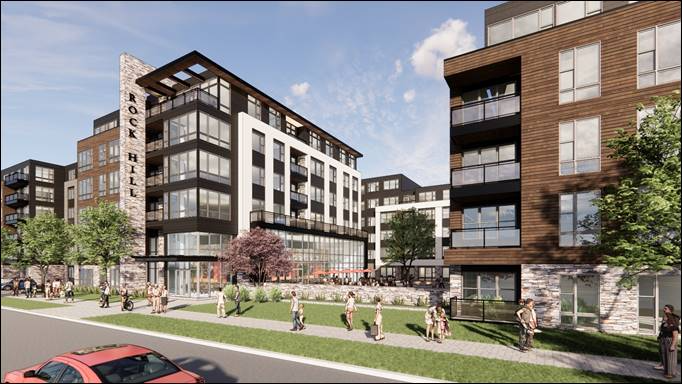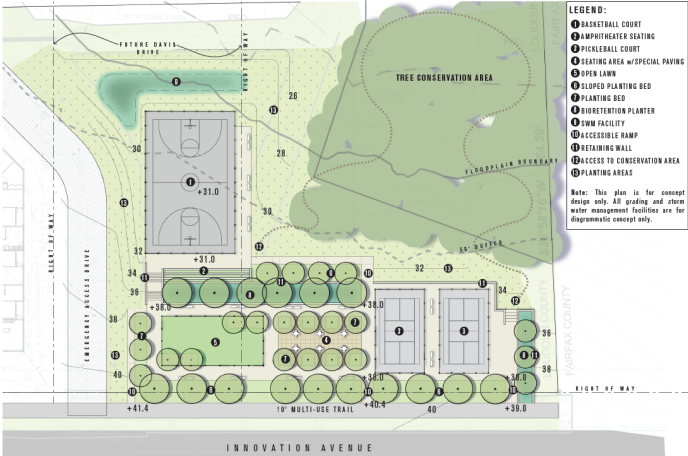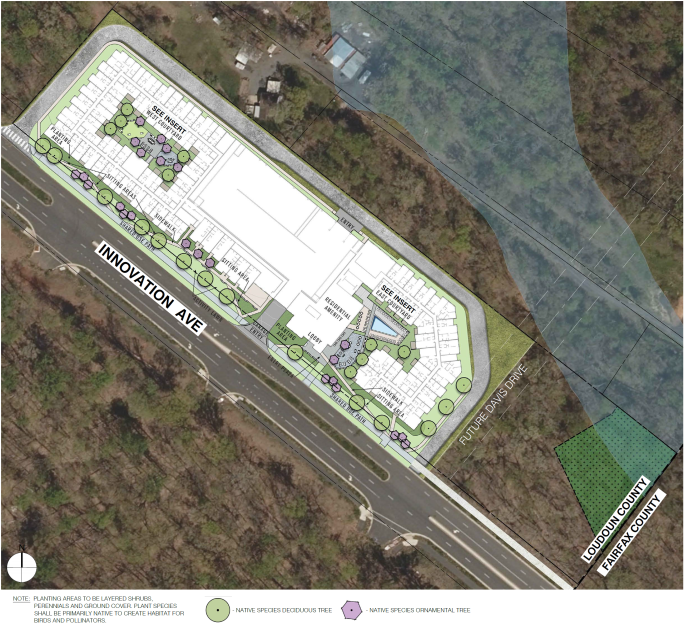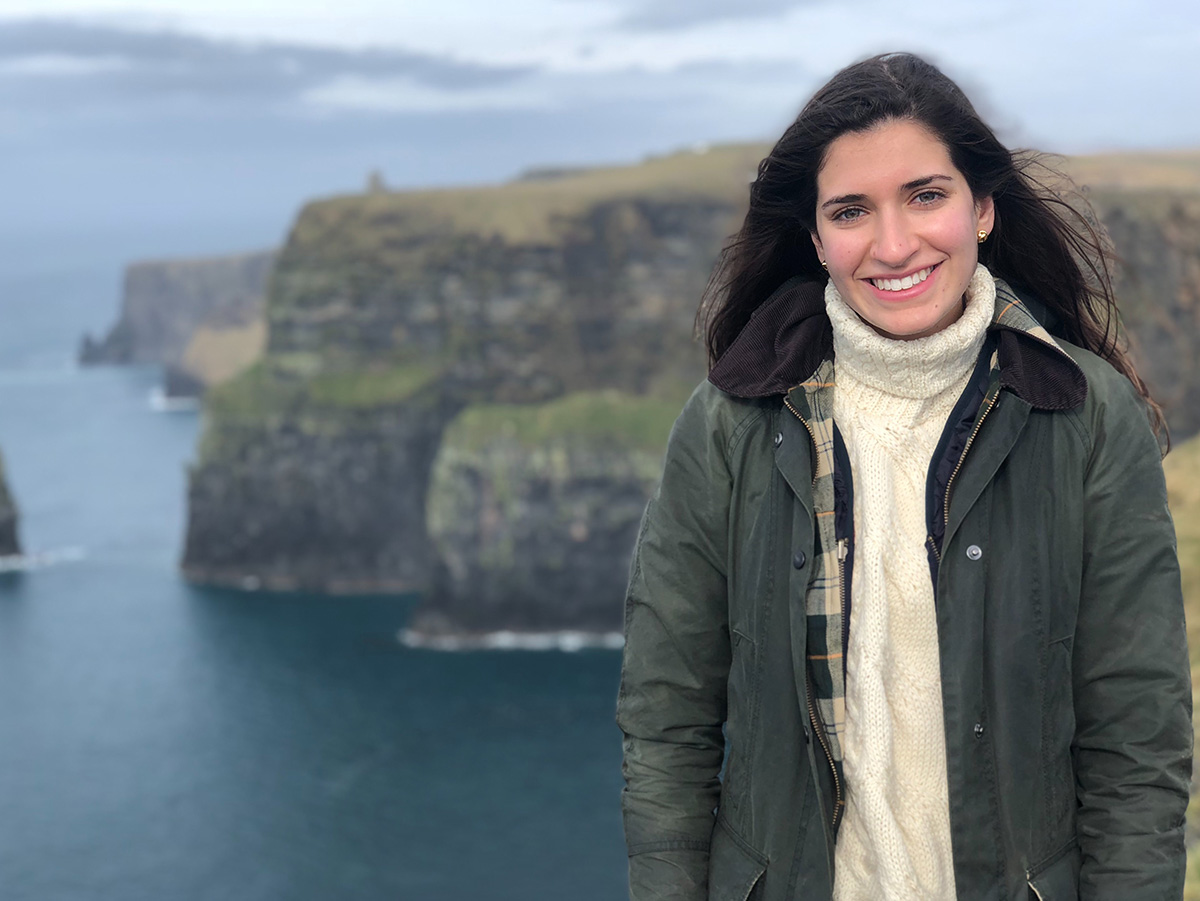
Greystar’s Innovation Multifamily project represents a paradigm shift in urban development in Loudoun County. The 415-unit multifamily building is located on less than five acres in a surprisingly untouched area of the county. For years, the area along Rock Hill Road and Innovation Avenue has been overlooked. The lack of infrastructure and access has hindered development options. With the recent arrival of Phase 2 of Metro’s Silver Line, this area is now coming to life.
In 2019, the county adopted a new comprehensive plan that for the first time in its history included an Urban Policy Area. This policy area calls for the highest building density in the county in close proximity to Metro stations. Despite the relatively untouched nature of the surrounding area, the Innovation Multifamily project is located entirely within a half-mile radius of the Innovation Center Metro Station. This proximity lends itself to a dense project that can help fulfill the goals and policies of the comprehensive plan.
The myriad features and commitments included with the Innovation Multifamily project set the standard for high-quality transit-oriented development in Loudoun County. Here are some of the features of the project:
• 10% ADUs (30%-50% AMI)
• 6 Live/Work Units
• Davis Drive Reservation and Dedication (126-foot right-of-way)
• 2-acre Neighborhood Park (Inclusive of a ½ acre Tree Conservation Area)
• Linear Park along Innovation Avenue
• NGBS Certification – Silver Level
• Bicycle Room (can accommodate 200 bicycles)
• Electric Vehicle Charging Stations (accommodates 16 spaces)
• Transportation Demand Management Program
• Innovation Avenue Crosswalks
• Bus Shelter
• Internal Amenities: Courtyards, Pool, Fitness Center, Co-working Space, Coffee and Snacks Refreshment Area, and Micro Market
• Capital Facility and Transportation Contributions
Despite all of the positive features and commitments included as part of the project, the rezoning application faced stiff resistance from county staff. Greystar, Walsh Colucci, and the development team that included Dewberry, Wells + Associates, HCM, and WSSI continually worked with county staff and the planning commission to improve the project throughout the review process. The Board of Supervisors understood and appreciated the application’s numerous benefits and voted to approve the application on November 15, 2022. This approval signals that well-thought-out urban development is appropriate in the right locations in Loudoun County. This project sets a new standard for which Loudoun County can be proud of and embrace as it embarks on a new chapter in its development.












Real estate transactions attorney and shareholder Antonia Miller was recently interviewed and featured on Fidelity National Financial‘s Built Podcast. Every case presents unique complexities and Antonia’s hands on, problem-solving approach both on paper and in-person have helped move the needle on her clients’ development projects. When Antonia is not on-site or digging through land records, she is stepping outside her bubble, exploring the community where she lives and works.
Listen to the podcast recording here. Also available on Spotify and Apple Podcasts.